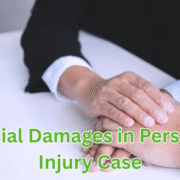What Is a Deposition in a Personal Injury Case?
Having just concluded your deposition after being hurt in Utah, you might be wondering what comes next. Depositions can feel tense, yet they mark only one stop on the legal road. After both sides ask their questions under oath, the lawsuit shifts into a fresh phase that shapes whether you settle or face a jury. Knowing the timeline, the choices, and the common hurdles keeps stress low and lets you make smart moves.
In simple words, this guide walks you through each step so you can follow your personal injury lawyer’s advice with confidence, talk to doctors when new records are needed, and track what to expect from the insurance company’s next offer. From fresh expert opinions to final settlement talks, we break it down in clear terms.
Key Takeaways
- Transcript review sets the next moves
- Lawyers spot gaps or strong facts
- Settlement talks often restart quickly
- Experts may be hired for opinions
- Discovery deadline can close soon
- Motions may limit trial testimony
- Mediation can save time and money
- Trial date still keeps pressure on
Why Depositions Matter in a Personal Injury Case
Depositions serve three main jobs.
First, they freeze testimony. Each witness speaks under oath while a court reporter records every word. Later, if a story changes, both the judge and jury will see the conflict.
Second, a deposition helps both sides test the strength of the claim. A steady witness who explains pain, limits, and medical bills can push an insurer toward a fair check.
Third, the process unlocks facts that written documents never show – tone of voice, pauses, and body language tell whether a witness looks honest.
Benefits for injured people
- Shows daily struggles in your own words
- Let your personal injury attorney gauge jury appeal
- Puts pressure on the insurer to settle sooner
Benefits for defense
- Reveals weak points to build later attacks
- Creates sound bites for cross-examination at trial
- Spot extra witnesses or records to request
Depositions weigh so heavily in Utah that judges usually set firm rules for notice, length, and where they happen.
What Happens During the Deposition?
Even though walking into a conference room for questioning feels different than entering a courtroom, the oath retains the same power. The opposing lawyer asks most of the questions while your lawyer guards against unfair tactics.
A court reporter sits quietly, capturing each word. Breaks are allowed, and you may speak with your lawyer privately when needed. Water, tissues, and a calm setting help you focus on truthful answers. Remember, it is not a debate, just stick to facts and speak clearly.
Step-by-Step Detail
Swearing In
The court reporter instructs you to raise your right hand and to swear to tell the truth. After you are sworn, everything you say will be on record.
Ground Rules
The questioning lawyer covers basic rules: answer out loud, wait for the full question, and tell them if you do not understand. These rules prevent messy transcripts.
Background Questions
You will share your name, address, date of birth, and short job history. Simple as it seems, accuracy matters since later answers rely on these facts.
Medical History
Expect questions about prior injuries. Honesty builds trust. If you cannot recall a date, say so. Guessing can hurt credibility.
Accident Details
The lawyer moves to the event itself, time, location, weather, and what you saw and felt. In a car crash injury attorney case, they might ask about seat belt use and speed. It is important to pay attention to surface conditions and warning signs in slip and fall cases. Don’t be vague: who, what, where, when are the most important questions.
Injuries and Treatment
You will explain pain levels, surgeries, therapy, and medication. Bring a timeline or list if your lawyer suggests it. Medical malpractice attorney cases often require extra detail about each doctor visit.
Daily Life Impact
Questions probe lost wages, hobbies you cannot enjoy, and chores you now avoid. Give real examples, such as “I can no longer lift my toddler without help.”
Future Care and Costs
They may ask about upcoming surgery or long-term needs. Workers’ compensation lawyer clients often discuss return-to-work plans and job changes.
Prior Claims or Lawsuits
Disclose any past injury claims, no matter how small. Withholding information invites the defense to claim you hid the truth.
Expert Reports
Sometimes experts join the deposition by video to give early opinions on fault or medical issues. Their remarks shape later settlement value.
Exhibits
Photos of the scene, medical charts, or repair bills may be marked as exhibits. Review each one before answering questions about it.
Closing Questions
The opposing lawyer asks if you want to add anything. A personal injury attorney often advises a simple “no” unless something vital was missed.
Your Lawyer’s Follow-Up
Your lawyer may ask clarifying questions to fix any confusion or add helpful context for the record.
Reading and Signing
Afterward, you can read the transcript for errors. Correct spelling mistakes or misunderstood answers within the allowed time.
Key Tips for a Smooth Session
- Pause before answering so your lawyer can object if needed
- Keep calm even if questions feel sharp
- Never volunteer extra details beyond the question
- Use plain words; avoid guessing
Do I Need a Personal Attorney Present?
Yes. The opposing lawyer’s goal is to lower or deny payment. Your own lawyer shields you from unfair questions, objects to anything improper, and notes issues for the judge. A top-rated personal injury lawyer also preps you on likely topics, body language, and common traps.
Without that support, you could offer harmful sound bites or agree to facts you barely recall. Having counsel is not just smart; Utah procedure often expects it once the lawsuit is filed. Whether you work with a free consultation personal injury attorney or hire a private firm, their presence evens the playing field.
When Does a Deposition Typically Occur?
Depositions fall within the “discovery” phase. In Utah, the judge sets a schedule at the start of the case. Most depositions happen 3 to 9 months after filing, but many factors shift that window.
Points that affect timing:
- Number of parties involved
- Medical treatment still underway
- Court’s calendar load
- Insurance company readiness
- Expert availability
- Need for interpreters
- Travel plans of key witnesses
- Ongoing criminal case tied to the event
- Pending motion to dismiss
- Holidays or severe weather
- Surgery dates for the injured person
- Settlement talks already scheduled
How it fits with other steps
First, both sides swap written questions and papers. Once records arrive, depositions start. After the last witness speaks, discovery usually closes within thirty to sixty days. The court then holds a status meeting, sets deadlines for expert reports, and picks a tentative trial date. Even if settlement talks heat up, the judge keeps those dates to maintain pressure.
Next Steps After the Deposition
1. Transcript Review
The court reporter finishes the transcript, often within two weeks. Your accident injury attorney checks every word for errors and notes strong answers that help settlement talks.
2. Follow-Up Discovery
If new facts surface, like another witness or missing medical record, lawyers request more information or set short “supplemental” depositions.
3. Expert Analysis
Doctors, engineers, or economists give written opinions based on your testimony. Their reports can raise or lower case value.
4. Settlement Meetings or Mediation
Many Utah judges order mediation within thirty to sixty days after key depositions. A neutral mediator guides both sides toward agreement.
5. Motions
Lawyers may file motions to exclude certain testimony or even push for summary judgment. Outcomes here narrow the issues for trial.
6. Pre-Trial Conferences
The judge checks if settlement is near, reviews pending motions, and sets time limits for trial.
How Long Until Settlement After a Deposition?
There is no single clock, yet patterns help set expectations. Many Utah car crash or slip-and-fall cases settle one to three months after your deposition, especially if liability is clear and medical bills are well documented. Insurers often wait for the transcript before making a higher offer. Your lawyer then weighs the offer against future care costs.
If there are larger medical malpractice claims or traumatic injuries involved, it may take six months, or longer, depending on ongoing treatment, claims for future wage loss, or where there are fresh opinions by experts. However, if the defence hears credible evidence at the negotiations stage, which looks good for a jury, they may seek to settle quickly and push for mediation within weeks.
Ready to Discuss Your Case? Schedule a Free Consultation Today
The team at Cockayne Law focuses on helping injured Utah residents face insurance companies with confidence. Whether you were hurt in a car wreck, a workplace mishap, or a medical setting, we line up facts, experts, and court rules to push for the payment you need.
A short phone call or in-office visit costs nothing. We listen to your story, check key documents, and outline next steps in plain words. Many clients tell us that knowing the plan lowers stress right away. Our fee comes from the recovery, so you pay nothing up front.
Call today or fill out the online form. A personal injury attorney will respond quickly, review your deposition status, and map out a strategy. Let Cockayne Law help you move forward while you focus on healing.
Conclusion
A deposition is not the finish line. It is a turning point that shapes settlement talks, future evidence, and trial planning. By knowing what happens after each answer is typed into the record, you stay one step ahead. Keep records organized, stay in touch with medical providers, and lean on your lawyer’s guidance. Clear teamwork between you and counsel can speed fair payment and reduce courtroom risk. Above all, remember that consistent facts and truthful testimony will help you build trust; at the negotiating table, and if necessary, before a jury.
FAQs
What happens at the end of a deposition?
Once questioning stops, the court reporter prepares a transcript. Each side reviews it for errors. Lawyers then decide whether to start settlement talks, request more records, or schedule further witness statements. The case may also head into mediation soon afterward.
How long does the deposition process take?
In personal injury depositions, the average deposition will last between two – four hours; complex medical malpractice depositions can last all day. The scheduling process, transcription, and follow-up work can take several weeks to complete the process.
What are the three steps of deposition?
First, the witness takes an oath. Second, lawyers ask questions and record answers. Third, the transcript is reviewed and signed. These steps freeze testimony and guide later settlement or trial planning.
What is the duration of deposition?
Utah rules often limit depositions to seven hours of actual questioning, yet many finish sooner. Breaks, document review, and setup time can extend the clock slightly.
How soon can settlement talks start after deposition?
Talks may begin within days once lawyers see the transcript. Strong testimony often triggers a fresh offer from the insurer.
Can I change an answer after reading the transcript?
You may correct spelling or clarify unclear wording on an errata sheet, but you cannot alter the meaning without explanation. Large changes can harm credibility.
Will new medical treatment affect my case after deposition?
Yes. Provide updated records so your lawyer can adjust the settlement demand to cover added costs and pain.










